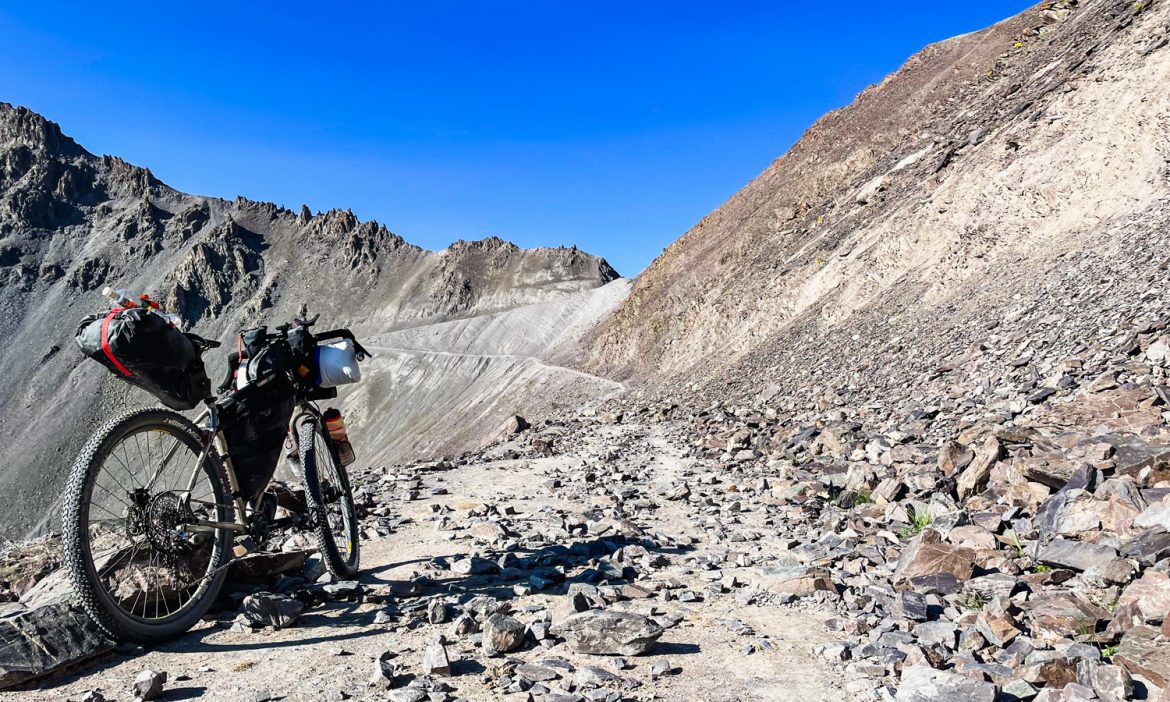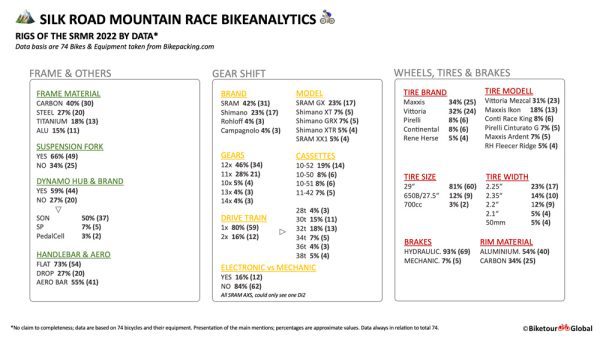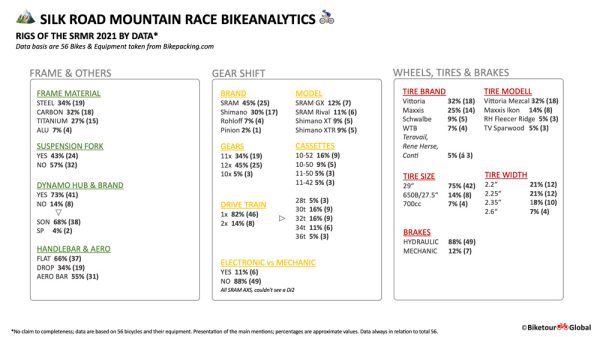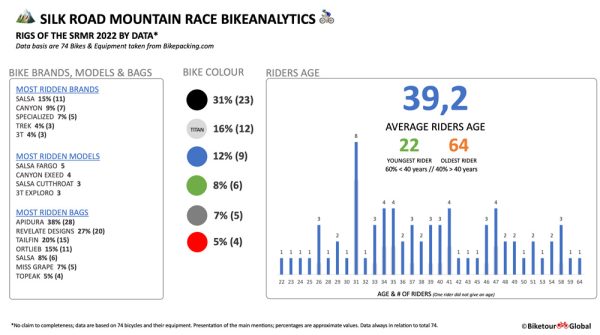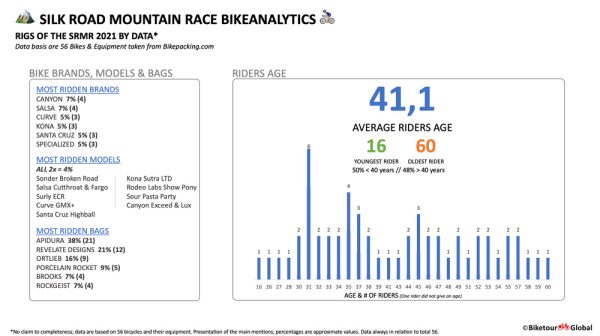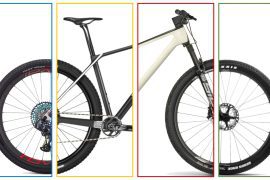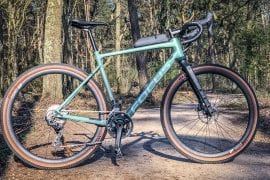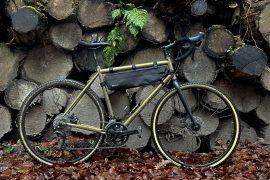On August 12, the Silk Road Mountain Race will start. Riders from 17 nations will set out to finish the 1,900km long and over 37,000 meters high race.
Besides the climatic conditions, the challenges at high altitude and in changing weather and temperatures between 40 degrees plus and minus 15 degrees, the mental strength will be crucial to finish this race successfully. And of course, whether you have put on the right bike and the right equipment.
For me, the Silk Road Mountain Race is always a good indicator of what has proven itself in practice and what you can rely on without reservation. Those who are allowed to participate here generally have a lot of experience with themselves and material. So you can only learn and if you’re also interested in bikes and equipment, you’ll enjoy reading the “Rigs of Silk Road Mountain Race” articles from Bikepacking.com.
For a few years now, I’ve been taking these overviews of bikes and gear and evaluating them in detail. And so it is this again.
Note: My evaluation refers to the 74 bikes listed in the Bikepacking.com article. So it is not complete, but gives a good indication of developments and trends.
2022: Three findings
Having successfully finsihed the Silk Road Mountain Race last year, I was naturally even more eager to see if anything had changed in terms of bikes. And indeed, there are a few things I find noteworthy:
MTB is first choice
What I noticed this year is that riders are relying more than ever on the classic hardtail MTB. I make this on the following indicators (apart from the fact that many of the bikes are also MTBs):
- Flat bars are in the majority with 73% (2021 66%). Drop bars occur on only 27% of the bikes (34% in 2021).
- Suspension forks are now in use on the majority of bikes. Last year, more riders were riding without suspension forks (57%). This year, 66% are riding with suspension.
- The dominant tire size is 29 inches. It was last year as well, but this time it came off even more clearly with 81%. A few are still riding 27.5/650B and only two riders are still relying on 700cc.
- The types of gears used also point to a clear shift towards MTB: SRAM Eagle GX and XX1, Shimano XT and XTR are the most used shifting systems this year. In addition, 12-speed is now the most widely used system.
Carbon has arrived
There were and are still prejudices about the durability and resistance of carbon in heavy use. In the MTB sector, carbon has long been the material of choice, in Bikepacking Races it came so slowly. This year, carbon has taken over the top spot, with 40% riding carbon frames this time around. In 2021, it was still 32%. Back then, the majority went for steel. This year, wheels made of steel take second place, ahead of titanium.
But carbon also has a significant share of the rims. I collected this data for the first time this year, which is why no comparison can be made. But it is remarkable that 34% of the participants tackle the race on carbon rims.
Racks are in
For some time now, you see more and more racks on Bikepacking Race bikes. Especially Tailfin, which have made a name for themselves because of the stability, practicality and weight among sporty bikepackers.
This year I took a closer look: 20% of the riders rely on Tailfin. One reason is certainly the large packing volume compared to the space consumption of the Tailfin bag and the air resistance-friendly pack shape.
Otherwise, Apidura and Revelate Designs have maintained their leading position as main equipment suppliers.
Furthermore: Younger & Black
Two more things before you look at the details yourselves:
The average age of the field has tapered off a bit, from 41.1 to 39.2. 60% are 40 years and younger. In 2021, it was only 50%. This year, the oldest recorded rider is 64 years old, the youngest 22. Like last year, most riders are 31 years old.
Since there are always voices that I should only evaluate the bikes of those who have made it: The bike is certainly important, but often not decisive. In this race, physical fitness, resilience and mental strength are what count.
And the color of the bike matters: This year I evaluated them once and the majority has a black bike, followed by titanium colors and blue. So if you ever want to participate in this race, you should choose among these colors to be on the safe side 🙂
Although Sofiane rides a red bike and will probably win again – or at least be in front.
Bikeanalytics: The bikes of the Silk Road Mountain Race 2022
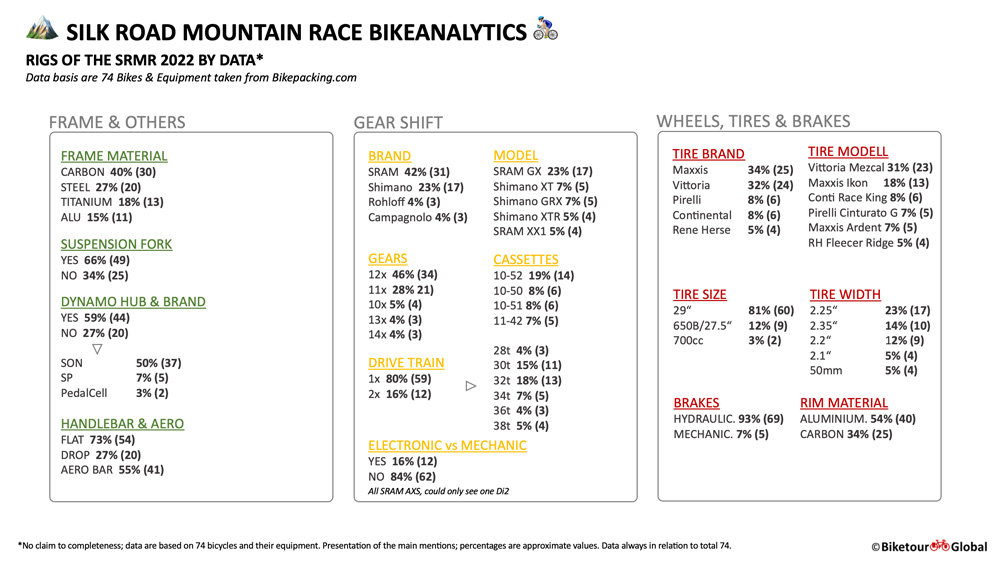
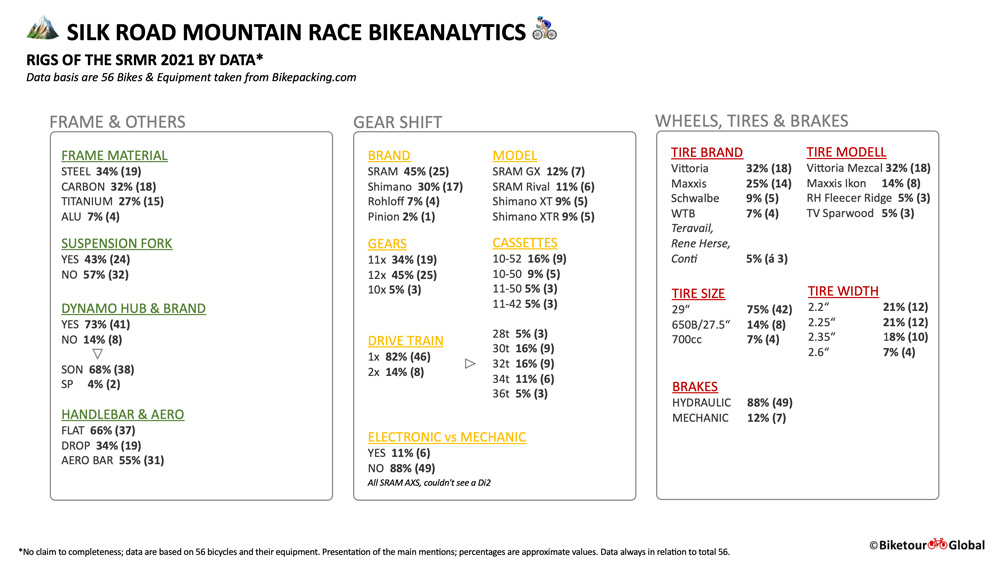
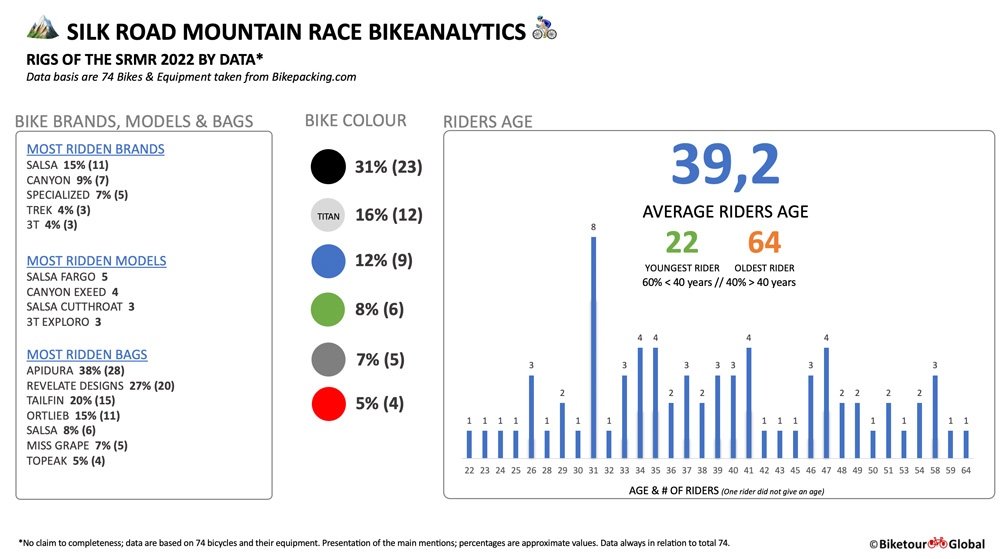
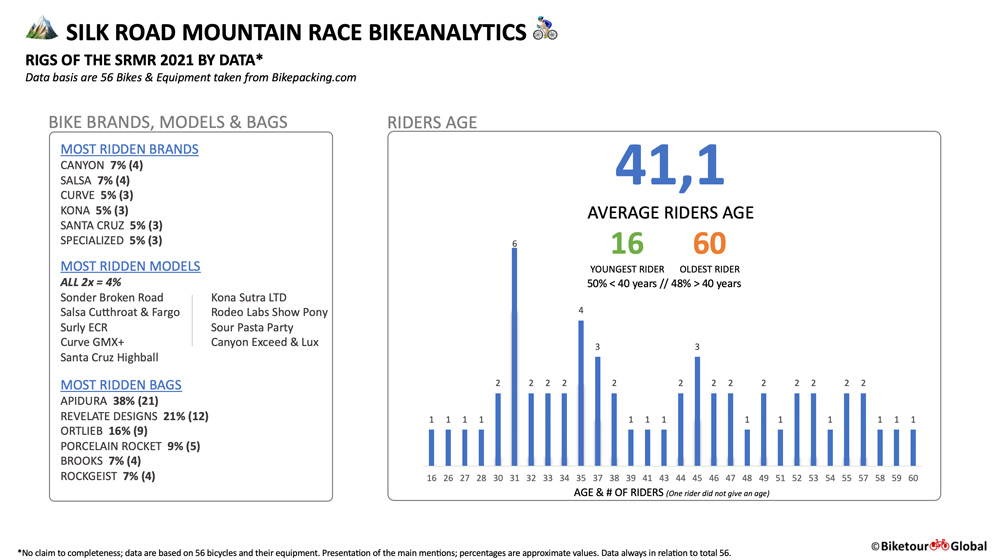
And in case you can’t get the images above to display well in the comparison slider, here’s another way:

